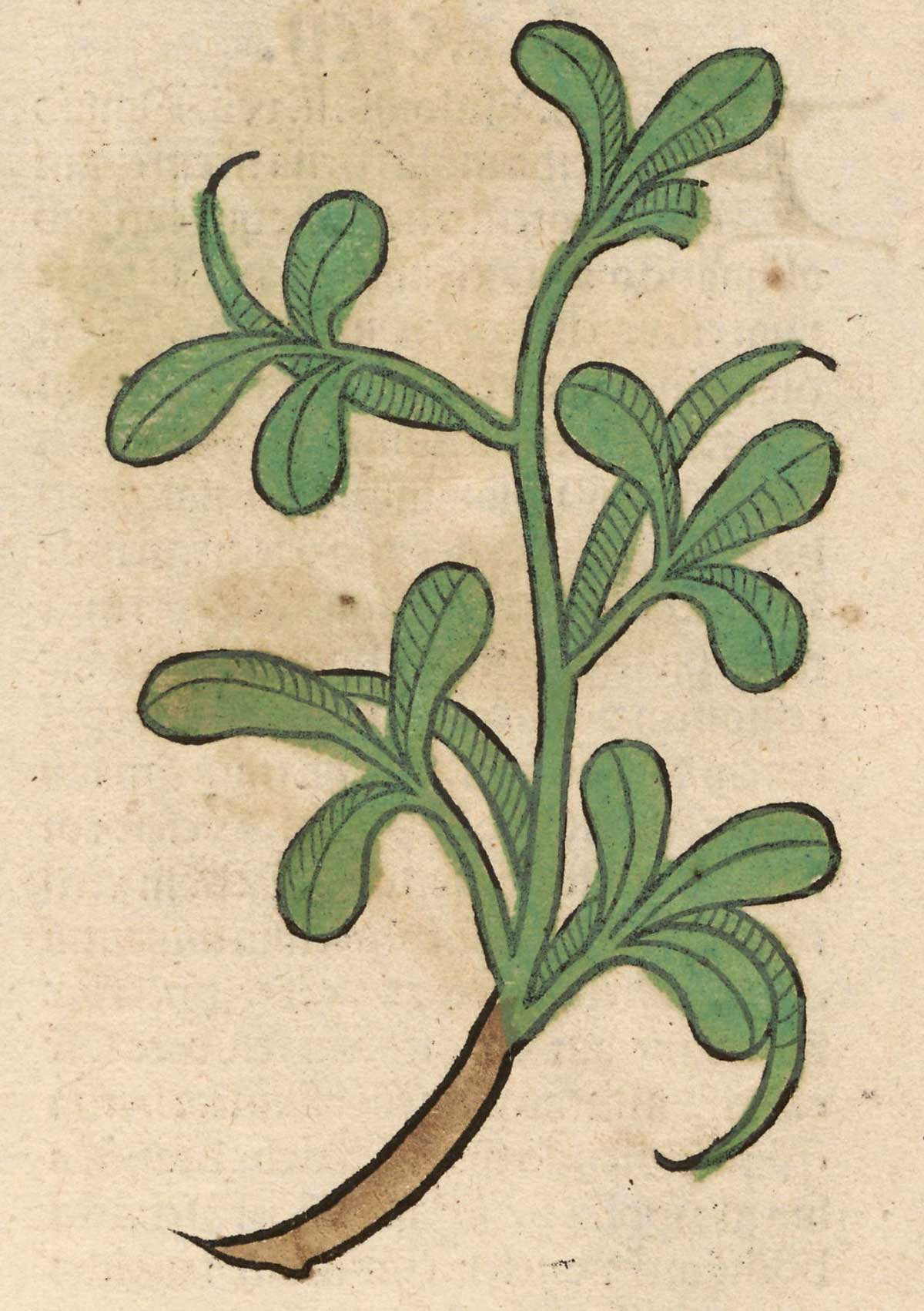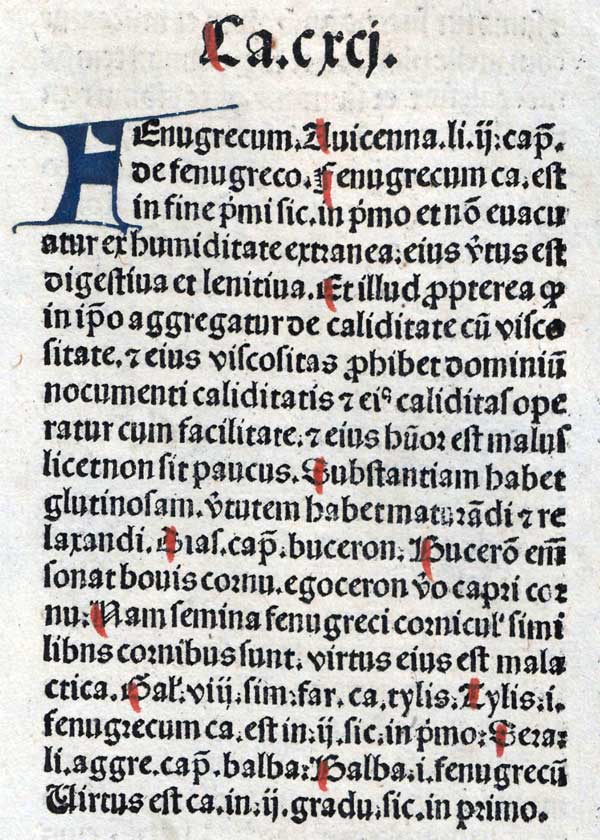Among the eight Hamadryades, children engendered by Oxylus on his sister Hamadryas.
Notes
Fenugrecum
Fenugrecum (text)
Fenabregue
Après avoir longtems cherché ce que signifioit ce mot, j’ai fû enfin qu’à Sommiéres en Languedoc on appeloit fenabregue l’arbre que nous appelons alisier.
fenabregue
Translated by Urquhart as “ash.” Ozell notes: “M. du Chat, after he had sought a long while what this Word meant, at length found that at Sommieres in Languedoc, they called Fenabregue the Tree that’s called in other Parts of France Alsiter, the Lote-tree; of which, says Cotgrave, there is the grey, the red, and other sorts, all strangers in England.”
Fenabregue
Après avoir longtemps cherché ce que signifioit ce mot, j’ai sû enfin qu’à Sommières en Languedoc on appelloit fenabregue l’arbre que nous appellons alisier. (L.) — Le Duchat ajoute dans Ménage à ce mot: « On appelle ferabregue l’alisier, dans le patois de Montpellier et des environs. Voyez Jo. Bruter, De re cibaria, liv. XI, ch. xxxvii. » Ceci est une allusion bien singulière à tous les arbres dont on fait ordainairement les gibets; ce que désigne sur-tout le nom de l’arbre fenabergue, ou fin-abrège, c’est-à-dire qui abrège la fin ou la vie, et la virtu qu’a l’ormeau d’avoir été grand chirurgien en son temps, puisque la potence guérit de tous les maux.
Fenabregue
Fenabregue is an unknown tree. Duchat claims to have found it as the name of an ash in Languedoc. In Athenaeus all the other trees correspond to those put down here, and Fenabregue represents [greek] Mulberry. [Greek], however, is the correction of Meineke, the old reading being opea, which Rabelais probably took to be mountain-ash.
Fenabregue
Corruption du mot provençal Falabreguié. C’est le Lotus arbor des anciens botanistes et notre Celtis australis, L., ou micocoulier. (Paul Delaunay)
fabregue
Fabregue Plante dont les feuilles sont semblables à celles du serpolet. Elle croît dans les lieux pierreux. L’ infusion de fabrègue est souveraine contre la morsure des animaux venimeux, contre la difficulté d’ uriner, et contre plusieurs autres maladies.
fenugreek
fenugreek. Forms: fenogrecum, fene-, feyngrek, feiny greke), fene-, feny-greke, fen(e)-, fenigreek(e, fenecryck, foenegreeke), feni-, feny-, fenugrec(k, fenegry), fenu-Greek, oenugreek, fenugreek. [OE. fenogræcum, Latin fænugræcum for fænum Græcum Greek hay, the name given by the Romans (see quot. 1861). The Middle English and later forms are adaptation of French fenugrec]
A leguminous plant (Trigonella Foenum Græcum) cultivated for its seeds, which are used by farriers.
C. 1000 Leechdoms, Wortcunning, and Starcraft of Early England II. 181 Wiþ sarum maan eft edo on wearmne ele þa wyrt þe hatte fenogrecum.
13… Med. Receipt in Reliquiæ antiquæ: scraps from ancient manuscripts I. 51 Tak… feinygreke… and farse the catte.
C. 1420 Palladius on husbondrie ii. 43 Ffeyngrek… is to be sowe… in this Janes ende.
1562 William Turner A new herball, the seconde parte ii. 5 a, The flour or meale of Fenegreke.
1708 W. King Cookery ix, The herb fenugreek, with pickles, oil, and wine, was a Roman dainty.
1861 Miss Pratt Flower. Pl. II. 97 Fenugreek… so called by the Romans from their having adopted… the practice of cutting and drying it for fodder.
Sorbus torminalis
Sorbus torminalis, with common names wild service tree, chequers, and checker tree, is a species of Sorbus native to Europe from England and Wales east to Denmark and Poland, south to northwest Africa, and southeast to southwest Asia from Asia Minor to the Caucasus and Alborz mountains.

